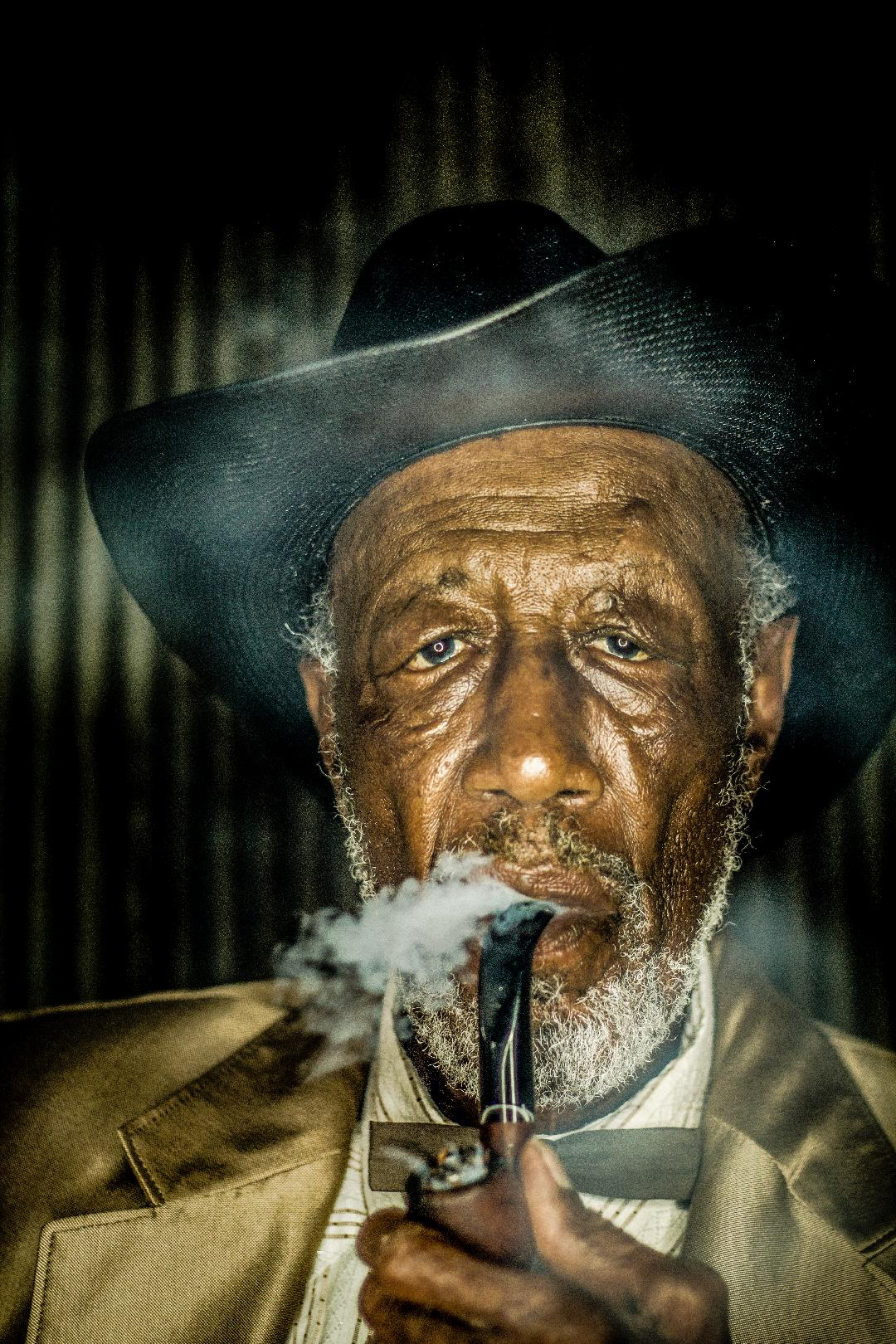
Chicago musician shares his thoughts.
As Chicago legendary blues singer Tail Dragger (James Yancy Jones) performs around the world and at home, he says he finds it troubling that Black musicians are not embracing the Blues and show little interest in keeping the genre alive and authentic.
“They don’ gave it away,” Tail Dragger said last week of what African-Americans have done with the Blues. “If it wasn’t for young White kids, blues would be dead. My entire band is White. I can’t find the young Black men who want to play blues. Eddie Taylor Jr. is the only Black guy I know who is still playing traditional blues. The young Black folks are ashamed of it. I wish more Black young people would think about what our forefathers created and not be ashamed of something that is a big part of Black culture.”
The blues genre was created by African-Americans in the Deep South around the end of the 19th century, evolving from African spirituals, chants and field hollers, and used originally by the slaves who worked in the fields of White slave owners.
Blues musicians Howlin’ Wolf, Muddy Waters, Coco Taylor, Sonny Boy Williamson, John Lee Hooker, Albert King, Little Walter, B.B. King, Bobby Bland, Otis Rush, Blind Willie Johnson, Willie Dixon, Junior Wells, Big Mama Thornton, Otis Spann, have all passed on but were among the well-known blues artists who kept the genre alive during their time.
Tail Dragger, 77, a retired auto mechanic, listened to blues on a battery-operated radio as a little boy growing up in Altheimer, Ark. After learning the words, he would go to school and sing the songs to the girls at his school, he said. He loved the blues so much he told his aunt that he was going to be a blues musician one day.
“She said I wasn’t but she got a chance to hear me sing before she died,” Tail Dragger said.
He honed his blues chops under the tutelage of Howlin’ Wolf (1910-1976), who gave Tail Dragger his moniker.
“He gave me the name Tail Dragger because I was always late getting there to perform,” Tail Dragger explained. “He would see me coming and would say, ‘here he comes dragging his tail.’ I also got that name because my musical timing was bad. I thought I was really doing something, but I didn’t know timing. Wolf talked about me after a show, so I asked him to teach me. He took a liking to me and taught me. I was about 30 years old at that time. He told his band to help me out also. I had top musicians helping me. He told them I was going to take his place someday.”
Tail Dragger said he was influenced by Williamson, Boyd Gilmore, Jimmy Reed, Waters and Elmore James. Throughout his career, the blues man performed on both the West and South sides of Chicago.
His CDs include Crawlin’ Kingsnake (St. George Records); American People (Delmark Records); My Head is Bald (Delmark Records); Live At Rooster’s Lounge (Delmark Records). He also has four live DVDs.
“I never changed my style,” said Tail Dragger. “I have to play and I sing what I feel. It comes from my heart and my soul. I never write nothin’ down. Blues is life, so you live the blues. I normally perform in Europe. I’m just now starting to get recognition in the U.S. People from Austria came and found me at my house on the West side of Chicago and said they wanted to record me. They saw one of the movies I was in and found me. Whenever I go there, they always rent me a house. They pick me and my wife up for lunch and dinner.” Tail Dragger has been married 21 years to his wife, Bertha.
Tail Dragger is treated like royalty on the other side of the pond.
“The people over there treat me well and I’m received well,” Tail Dragger said. “The only way I’m reminded that I’m Black, is when I look in the mirror. It’s the same wherever I go in the world. They are good to me whether it’s Finland, London, Panama or Brazil. They love the blues. I never thought I would travel the world and go to the places I’ve been because of the blues.”
Whenever he is in Brazil, the blues musician said youth are always trying to learn the guitar so they can play blues music, something he said he doesn’t find here in the states.
“When you do find young Black musicians playing the blues, they are trying to play to White audiences because they figure they can make more money. They dress it up too much. When you go to Europe, though, you can’t fool them. I try to teach young Black people but they don’t want to listen.”
Dragger performed last year and this year at the Chicago Blues Festival.
“I wish there was a young Black musician I could pass my legacy along to,” Tail Dragger said. “I have kids but they are not interested in the blues either. My granddaughter is doing rap music. This is why I can’t change my style. Others get so rich off the blues and Black people are ashamed of it.”
Dragger, like other blues musicians, performed at small hole- in-the-wall spots on Chicago’s west side. He said most of those joints have closed because the areas are now so dangerous.
However, you can still catch his performance twice a month on Tuesdays at the Water Hole Lounge, 1400 S. Western Ave.